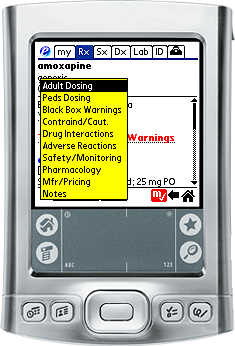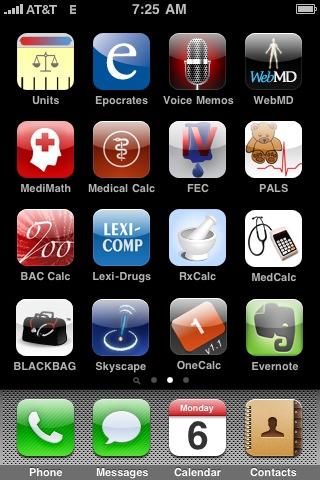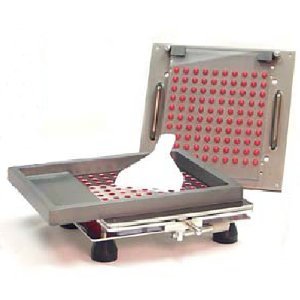Medicine 2.0 Congress blogspot : “Readability of the Top 50 Prescribed Drugs in Wikipedia – Devin explained that a sample of 50 most prescribed drug in United State were selected and the content related to those prescribed drugs in Wikipedia were indentified and saved as HTML files for evaluation. Each Wikipedia entry was analyzed independently by two investigators using Flesch-Kincaid Grade Level. A Health information readability analyzer was also used to integrate dimensions that other readability tools lacked such as : lexical, the most easy to read; semantic, the most difficult to read; cohesion and syntactic. Eventually, descriptive statistics was used to analyze the scores generated by these tools. Devin concluded by stating that the reading level of the 50 prescribed drug entries in Wikipedia are higher that the reading level of consumers. Therefore, there is a potential barrier of health and drug information for some Wikipedia users. To improve the Wikipedia, the vocabulary can be simplified; and in order to improve the consumers’ comprehension, the lexical and syntactic constructs need to be enhanced without compromising cohesion and structure.†– Similar to information provided by drug reps, Wikipedia is not a credible drug reference and should never be used as such. While interesting, Wikipedia may contain opinions and information presented in a biased manner. The fact that there is a study on the usability of drug information in Wikipedia is disturbing. When looking for drug information, healthcare professionals should always use credible references like Lexi-Comp, UpToDate, MD Consult, or something similar. If detailed information is needed, consult the primary literature. Consumers should consult their local pharmacist for credible drug information.
Blog
-
Epocrates in the news this week
 Epocrates is a suit of mobile medical reference material, with their drug information application being the most popular. The applications are available for a variety of mobile devices including Palm, Windows Mobile, BlackBerry, and of course the iPhone. Despite the popularity of Epocrates I still think Lexi-Comp offers better products for mobile devices.
Epocrates is a suit of mobile medical reference material, with their drug information application being the most popular. The applications are available for a variety of mobile devices including Palm, Windows Mobile, BlackBerry, and of course the iPhone. Despite the popularity of Epocrates I still think Lexi-Comp offers better products for mobile devices.FierceMobileHealthcare: “Epocrates: Nurses prefer Palm but physicians love the iPhoneA recently released survey from mobile healthcare software developer Epocrates indicates that nurses still prefer Palm PDAs and smartphones for viewing Epocrates reference tools, though the iPhone/iPod touch and BlackBerry platforms are gaining. But in an interview with FierceMobileHealthcare last week, Michelle Snyder, Epocrates’ senior VP for subscriber business, said that the iPhone is far and away the most popular device among physicians.†– The article goes on to say that Epocrates is gaining “more than 300 new docs a day on the iPhone“.No surprise there.
Medical Smartphones: “Epocrates has announced that they will be phasing out support for older Palm OS and Windows Mobile/Pocket PC devices. Specifically, older devices, including those with Palm OS less than 5 and Pocket PC 2002 OS, will lose support. If you have a Pocket PC, go into Settings, and then click on “About” to see what version you’re running. Some older devices (like some of the HP iPaq models) run Pocket PC 2002.†– This is interesting, but pretty much irrelevant. I think most healthcare professionals using mobile technology as a reference device won’t even notice the loss of support for these older devices.
-
Hypatia research study only states the obvious
EMR Daily News: “Hypatia Research, LLC today released a report entitled “What Healthcare CIOs Need to Know About ARRA & EHR: Healthcare Technology Solutions & Service Providersâ€. Beyond the obvious value of centralized access to patient data, Hypatia Research discerned that electronic records systems provide health providers with multiple benefits: 1. ACCURACY& ERROR-CHECKS; 2. REPORTING; 3. MEDICAL NOWLEDGE-BASE; 4. NEAR-TIME ACTIONABLE INSIGHT” – If your CIO needs a research firm to understand what an electronic records system should provide, then you’re healthcare system is in deep doo-doo. This is all basic stuff that should have been on the radar long ago.
-
Thoughts on speech recognition in pharmacy
I still work in the pharmacy on occasion. It keeps me up to date with changes that I’ve made to various pharmacy systems and gives me the opportunity to make sure my pharmacist skills haven’t evaporated. One thing it doesn’t do is get me away from my current technology related duties. In fact it puts me closer to the action and even more accessible to pretty much everyone, which means I spend a majority of my “staffing†time dealing with things related to our automation; carousel picks and loads, packager fills, compunder checking, labeler input and checking, minor troubleshooting, etc. It’s not that someone else can’t do it, but that’s the way it works out.
(more…) -
Sabotaging an idea – hybrid clouds?
InformationWeek: “What if, instead, applications throughout the data center could run at closer to 90% utilization, with the workload spikes sent to cloud service providers (a process called “cloudbursting”)? What if 85% of data center space and capital expenses could be recouped, with a small portion of that savings allocated for the expense of sending those bursts of computing to the public cloud? This tantalizing possibility–enterprise IT organizations managing an internal cloud that meshes seamlessly with a public cloud, which charges on a pay-as-you-go basis–embodies the promise of the amorphous term cloud computing. Step one with virtualization has been server consolidation. The much bigger benefit will come with the ability to move workloads on and off premises. “Anyone can build a private cloud,” says Rejesh Ramchandani, a senior manager of cloud computing at Sun Microsystems. “The gain comes if you can leverage the hybrid model.”†– So much for the purity of the cloud. I’ve read several articles lately that refer to “hybrid†or “private†clouds. Crud, my hard drive at home is a “private cloud”. I can partition it, virtualize it, and grant other users access to it. The very idea of a dynamically scalable and virtualized service over the internet disappears quickly when you begin to tie these services to local infrastructure. Having data reside locally for a short period of time to improve retrieval makes sense, but that information should eventually move to the cloud where it stays until needed again. The article above goes on to talk about the lack of standardization in the development of the cloud model. It sounds like everyone is headed in a different direction. I really hope the trend doesn’t continue as I think carving the cloud up into different models to suit your needs will only dilute a really good idea. Creating hybrid and private clouds will ultimately lead to another group of segregated services and a complete waste of the theoretical advantages of the cloud.
-
Best iPhone / iPod Touch Applications for Pharmacists
 The iPhone and iPod Touch have created quite a wave in healthcare, and along with the wave has come a plethora of healthcare applications. The user interface on the iPhone/iPod Touch combined with the ease of accessing applications on Apple’s iTunes store and the relatively inexpensive nature of most applications, have made these devices a favorite among healthcare professionals.
The iPhone and iPod Touch have created quite a wave in healthcare, and along with the wave has come a plethora of healthcare applications. The user interface on the iPhone/iPod Touch combined with the ease of accessing applications on Apple’s iTunes store and the relatively inexpensive nature of most applications, have made these devices a favorite among healthcare professionals.With the volume of healthcare related applications available, I’m surprised at how few I actually use. I spend quite a bit of time surfing the app store looking for new applications that I can apply to pharmacy. I’ve downloaded numerous applications, but have deleted most for one reason or another.
My “research” has led to the list below of applications that I find most useful as a pharmacist.
-
Cool Technology for Pharmacy
The Capsule Machine
 Capsule machines don’t exactly automate the process of filling capsules from scratch, but they sure do speed up the process. Anyone that has spent time punching capsules by hand will appreciate what a capsule machine can do for you. They are a real time saver.
Capsule machines don’t exactly automate the process of filling capsules from scratch, but they sure do speed up the process. Anyone that has spent time punching capsules by hand will appreciate what a capsule machine can do for you. They are a real time saver.Devices like these are used almost exclusively by compounding pharmacies and typically make up to 100 capsules at a time. Sure there are bigger capsule machines out there, but they typically aren’t used in community based pharmacies. I spent many hours in just such a pharmacy using capsule machines to make all sorts of things for both human and animal consumption. I don’t know how many thousand capsules I made, but rest assured it was a lot.
(more…)